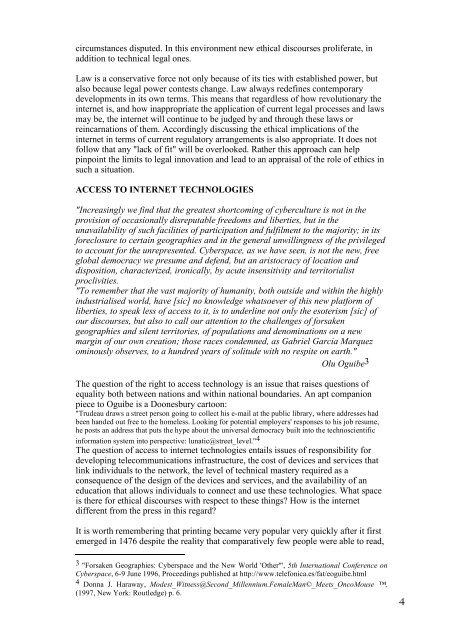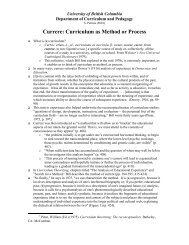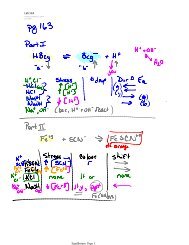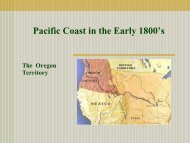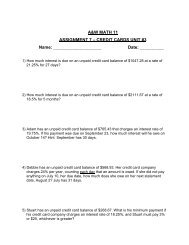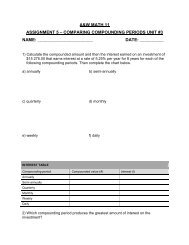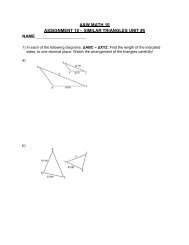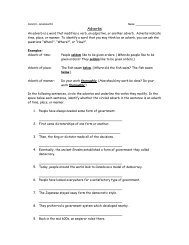ETHICAL BOUNDARIES AND INTERNET CULTURES
ETHICAL BOUNDARIES AND INTERNET CULTURES
ETHICAL BOUNDARIES AND INTERNET CULTURES
Create successful ePaper yourself
Turn your PDF publications into a flip-book with our unique Google optimized e-Paper software.
circumstances disputed. In this environment new ethical discourses proliferate, in<br />
addition to technical legal ones.<br />
Law is a conservative force not only because of its ties with established power, but<br />
also because legal power contests change. Law always redefines contemporary<br />
developments in its own terms. This means that regardless of how revolutionary the<br />
internet is, and how inappropriate the application of current legal processes and laws<br />
may be, the internet will continue to be judged by and through these laws or<br />
reincarnations of them. Accordingly discussing the ethical implications of the<br />
internet in terms of current regulatory arrangements is also appropriate. It does not<br />
follow that any "lack of fit" will be overlooked. Rather this approach can help<br />
pinpoint the limits to legal innovation and lead to an appraisal of the role of ethics in<br />
such a situation.<br />
ACCESS TO <strong>INTERNET</strong> TECHNOLOGIES<br />
"Increasingly we find that the greatest shortcoming of cyberculture is not in the<br />
provision of occasionally disreputable freedoms and liberties, but in the<br />
unavailability of such facilities of participation and fulfilment to the majority; in its<br />
foreclosure to certain geographies and in the general unwillingness of the privileged<br />
to account for the unrepresented. Cyberspace, as we have seen, is not the new, free<br />
global democracy we presume and defend, but an aristocracy of location and<br />
disposition, characterized, ironically, by acute insensitivity and territorialist<br />
proclivities.<br />
"To remember that the vast majority of humanity, both outside and within the highly<br />
industrialised world, have [sic] no knowledge whatsoever of this new platform of<br />
liberties, to speak less of access to it, is to underline not only the esoterism [sic] of<br />
our discourses, but also to call our attention to the challenges of forsaken<br />
geographies and silent territories, of populations and denominations on a new<br />
margin of our own creation; those races condemned, as Gabriel Garcia Marquez<br />
ominously observes, to a hundred years of solitude with no respite on earth."<br />
Olu Oguibe 3<br />
The question of the right to access technology is an issue that raises questions of<br />
equality both between nations and within national boundaries. An apt companion<br />
piece to Oguibe is a Doonesbury cartoon:<br />
"Trudeau draws a street person going to collect his e-mail at the public library, where addresses had<br />
been handed out free to the homeless. Looking for potential employers' responses to his job resume,<br />
he posts an address that puts the hype about the universal democracy built into the technoscientific<br />
information system into perspective: lunatic@street_level." 4<br />
The question of access to internet technologies entails issues of responsibility for<br />
developing telecommunications infrastructure, the cost of devices and services that<br />
link individuals to the network, the level of technical mastery required as a<br />
consequence of the design of the devices and services, and the availability of an<br />
education that allows individuals to connect and use these technologies. What space<br />
is there for ethical discourses with respect to these things? How is the internet<br />
different from the press in this regard?<br />
It is worth remembering that printing became very popular very quickly after it first<br />
emerged in 1476 despite the reality that comparatively few people were able to read,<br />
3 "Forsaken Geographies: Cyberspace and the New World 'Other'", 5th International Conference on<br />
Cyberspace, 6-9 June 1996, Proceedings published at http://www.telefonica.es/fat/eoguibe.html<br />
4 Donna J. Haraway, Modest_Witness@Second_Millennium.FemaleMan©_Meets_OncoMouse ,<br />
(1997, New York: Routledge) p. 6.<br />
4


